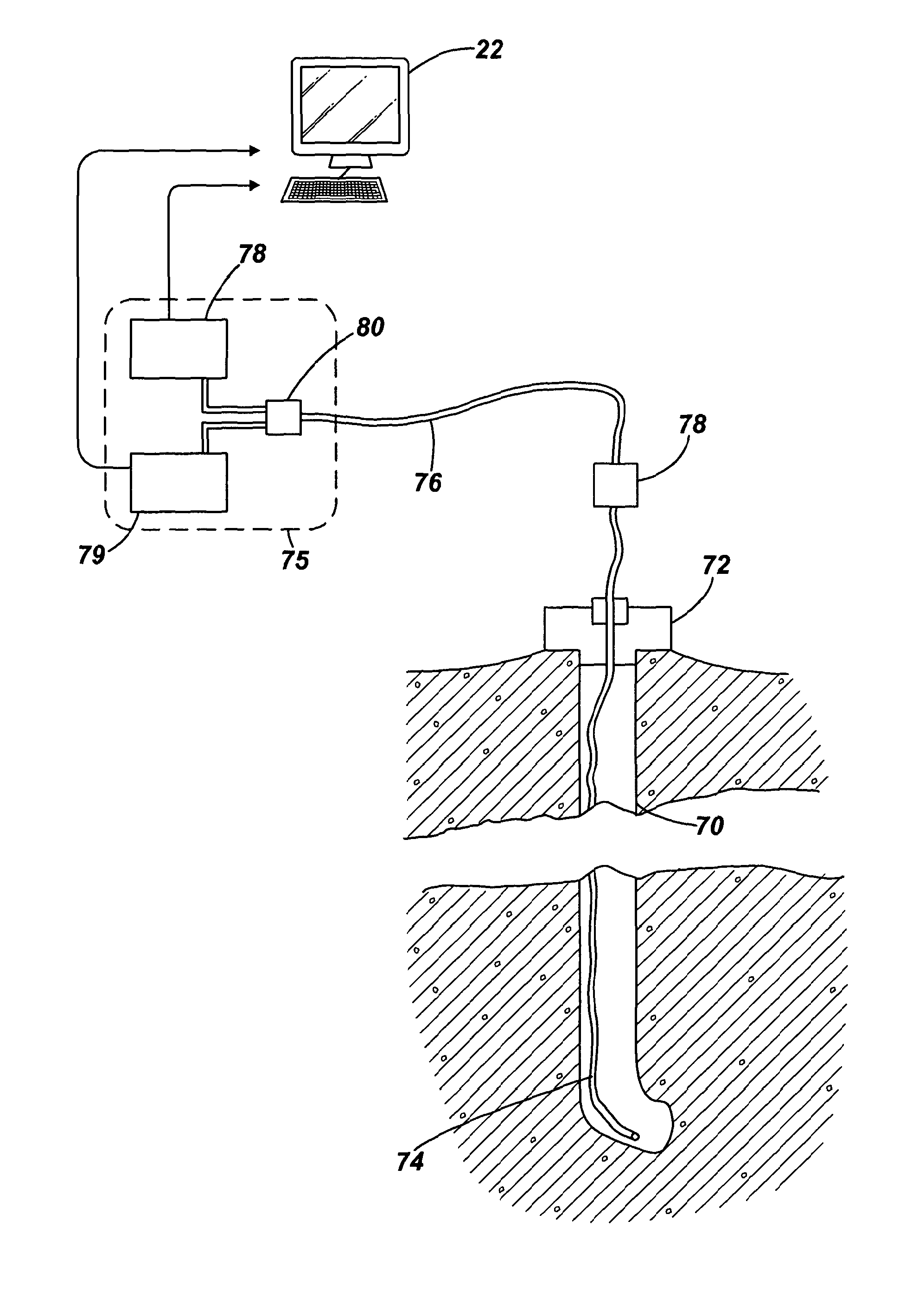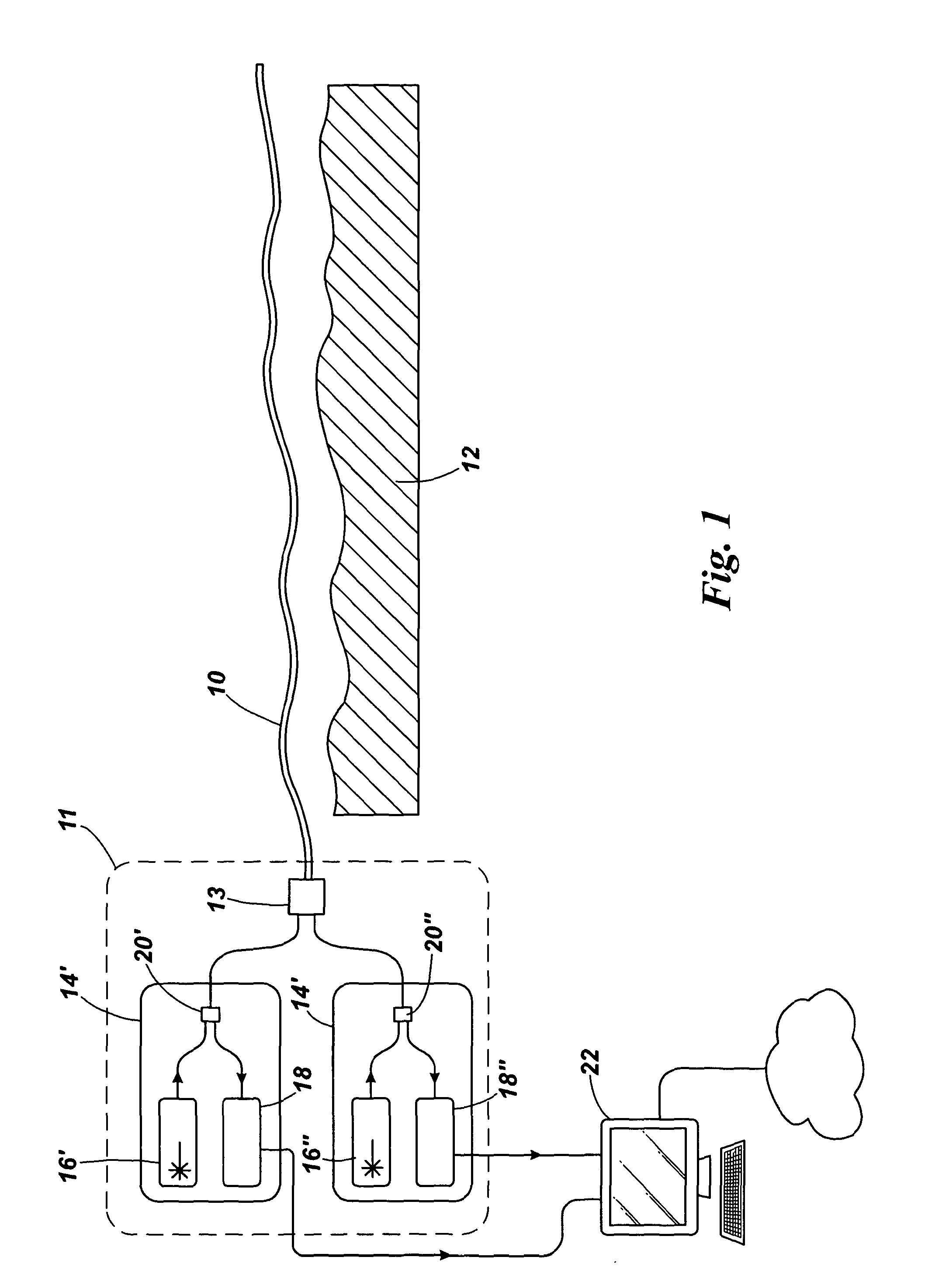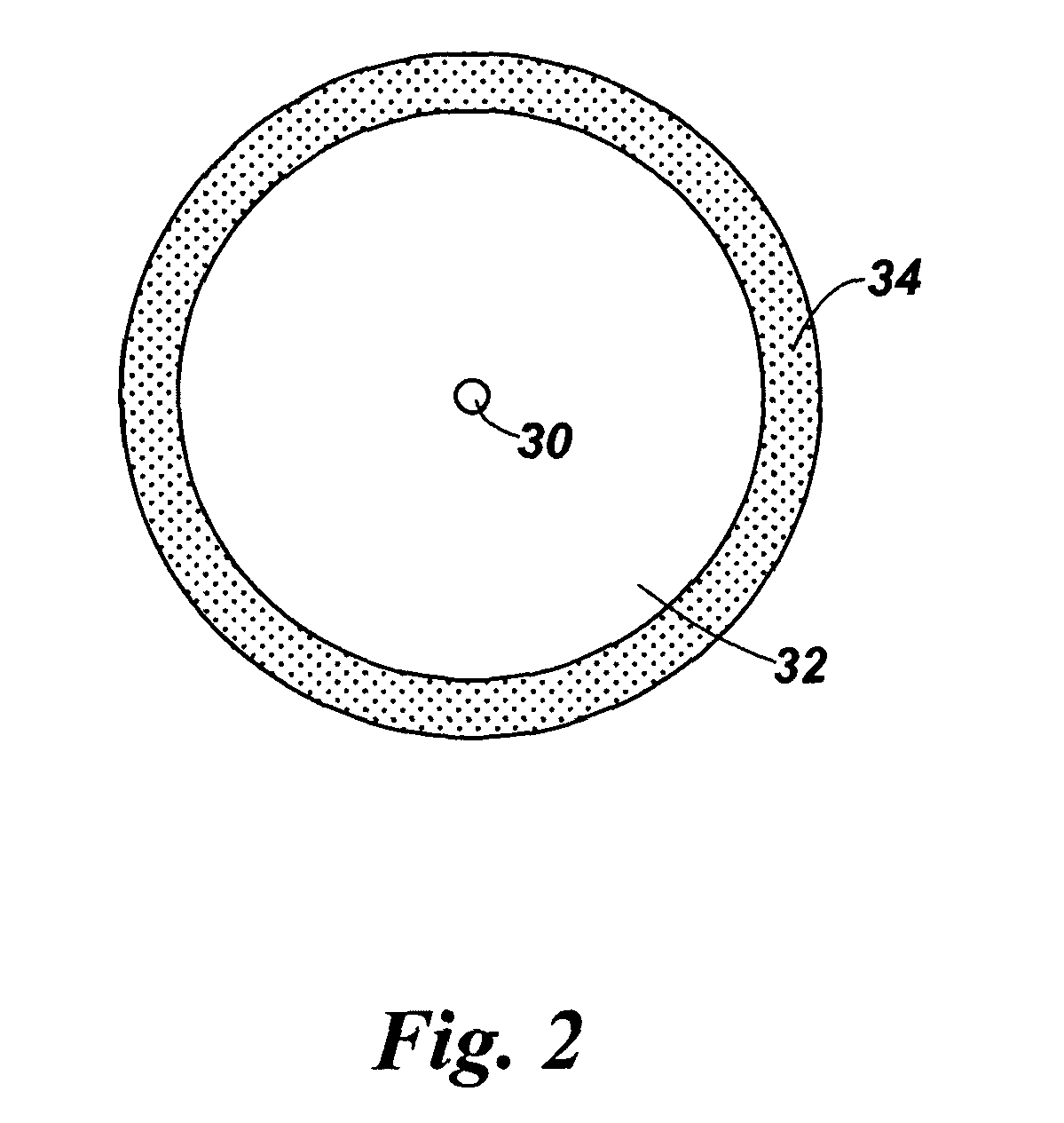Distributed optical fibre sensing
a technology of optical fibre sensing and distributed optical fiber, applied in the direction of optical radiation measurement, instruments, spectrometry/spectrophotometry/monochromators, etc., can solve problems such as connector damag
- Summary
- Abstract
- Description
- Claims
- Application Information
AI Technical Summary
Benefits of technology
Problems solved by technology
Method used
Image
Examples
Embodiment Construction
[0043]Referring to FIG. 1 there is shown an example distributed optical sensing system according to the invention. A sensor fibre 10, which may be housed for example as part of a cable structure, extends through an environment to be monitored, for example along a structure 12 such as a pipeline. The sensor fibre is a double clad optical fibre, although other fibre types having two or more waveguides extending together along the fibre may be used. The sensor fibre 10 is coupled to an interrogator system 11. In FIG. 1 the interrogator system comprises two interrogator units 14′ and 14″, which are both coupled to the sensor fibre using a combiner 13. Each interrogator unit 14 includes a probe light source 16, an optical analyser 18, and a coupler 20 to link both the respective probe light source 16 and the respective optical analyser 18 to a fibre running to the combiner 13. Typically, each probe light source 16 might include a laser such as a semiconductor laser, driving electronics f...
PUM
| Property | Measurement | Unit |
|---|---|---|
| length | aaaaa | aaaaa |
| physical parameters | aaaaa | aaaaa |
| temperature | aaaaa | aaaaa |
Abstract
Description
Claims
Application Information
 Login to View More
Login to View More - R&D
- Intellectual Property
- Life Sciences
- Materials
- Tech Scout
- Unparalleled Data Quality
- Higher Quality Content
- 60% Fewer Hallucinations
Browse by: Latest US Patents, China's latest patents, Technical Efficacy Thesaurus, Application Domain, Technology Topic, Popular Technical Reports.
© 2025 PatSnap. All rights reserved.Legal|Privacy policy|Modern Slavery Act Transparency Statement|Sitemap|About US| Contact US: help@patsnap.com



